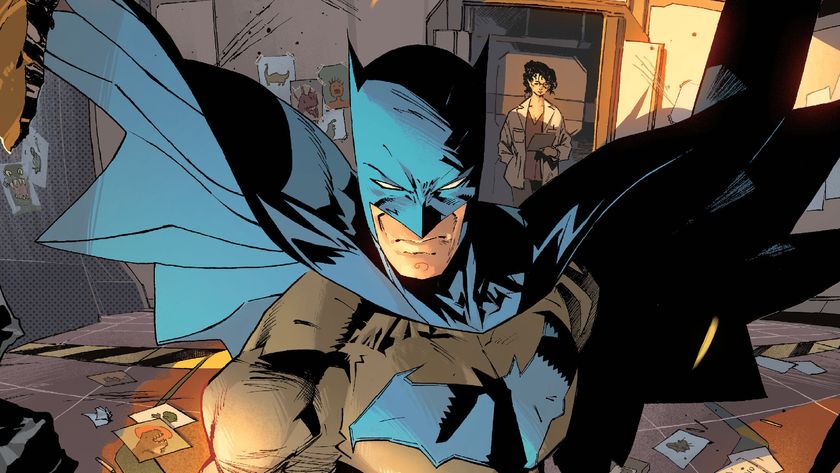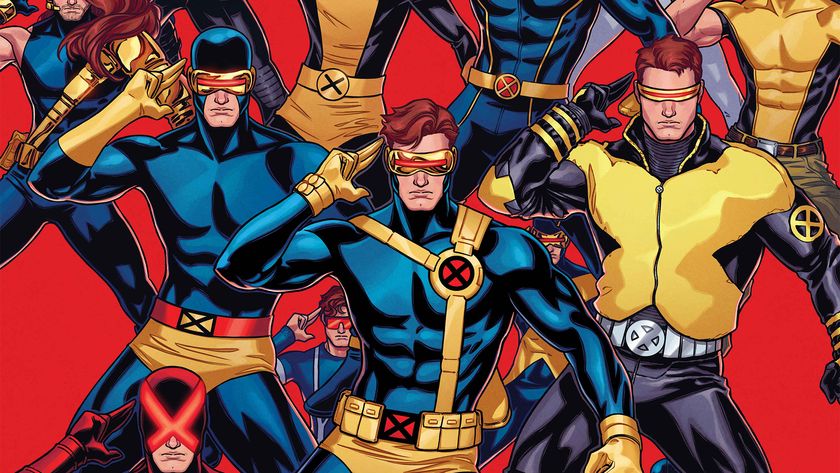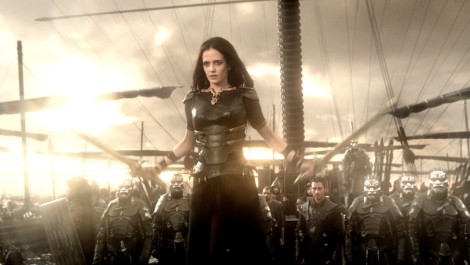Why you can trust 12DOVE
This long-gestating follow-up to Zack Snyder’s 2006 gore-spiller continues a swords-and-sandals revival that has already suffered one box-office casualty stateside with Paul W.S. Anderson’s Pompeii . Is there an appetite, then, for another belated helping of clanging steel, arterial splatter and rippling six-packs, especially one minus Gerard Butler bellowing “This… is… Spar-tahh!” from behind a bristling hedge of face-fur?
The moviemakers clearly hope so, pitching Rise Of An Empire as the putative second chapter in an ongoing saga with more than one field of adjacent activity. Turns out, you see, that the Battle of Thermopylae was not the only skirmish in Greece around 480 BC.
There was also a little dust-up in the Aegean between the Athenian fleet and the Persian navy, an episode that Empire paints as the watery equivalent of King Leonidas’ ill-fated last stand. The challenge for Noam Murro’s film, then, is to engage us in side-quel shenanigans in which the stars from the first movie barely feature, if at all. Hey, it worked for The Bourne Legacy … until people saw it.
Interestingly, though, Empire strives to make a virtue of its second-banana status by making its entire story one of inadequacy and belittlement. From the off, Greek general Themistocles (Sullivan Stapleton) is presented as Leonidas’ inferior, a blue-cloaked upstart next to his red-mantled overlord. (“You’ve come a long way to stroke your cock while real men train!” sneers Lena Headey’s Queen Gorgo when he comes to Sparta in the hope of brokering a pan-Grecian alliance against the invading Persian forces.)
Sparta, we’re told, is the “birthplace of the world’s greatest warriors”, as opposed to Athens, the home of namby-pamby democracy and senators bickering over the correct course of action. Not only that, but Themistocles also faces being soundly whipped by his Persian opposite number: Eva Green’s vengeance-crazed Artemisia, a woman with more balls than a dozen Athenian codpieces and an armada large enough to make even the hardest soldier shrivel.
“Your barge and you are quite impressive!” says Stapleton during a pre-battle pow-wow with Green that predictably results in some hanky-panky. Even here, alas, he comes up short, further pressing home Rise ’s sneaky subtext of impotent frustration.
What’s a Greek to do? Why, slice and dice his enemies of course, something Murro strikingly facilitates via a wealth of epic fight scenes that see computer-enhanced plasma spurt from every yawning wound and noggins separate from torsos in operatic slo-mo. Here, at last, is something Themistocles does know how to do. Even Artemisia is impressed: “You fight much harder than you fuck!”
In this context it sort of makes sense that Australian hunk Stapleton is a charisma-free blank whom Green upstages with consummate ease. Even with her involved, though, it is hard not to feel we’ve been saddled with the B-team, for all Headey’s reams of voiceover and a backstory flashback explaining the genesis of Rodrigo Santoro’s god-king Xerxes.
OK, so there are cameos from David Wenham’s one-eyed warrior Dilios and Andrew Tiernan’s two-faced hunchback Ephialtes. But there’s a huge Butler-shaped hole where a leading man should be, something a few inserts of the bearded lug can’t hope to make up for.
It’s a shortfall that Murro can’t quite overcome. But he has a good go anyway, taking the first pic’s testoster-toned aesthetic and giving it a new home on CGI seas that, if nothing else, will help pave the way for Darren Aronofsky’s Noah. Indeed, the maritime melees are by far Empire ’s strongest suit.
The crunching collisions between Stapleton’s nimble wooden vessels and Green’s hulking behemoths are both the best justification for the movie’s 3D conversion and the most fitting accompaniment to Junkie XL’s thunderous, bombastic score. There’s even a nod to From Russia With Love , former Bond girl Green cleverly using oil at one point to turn the ocean around Stapleton’s ships into a combustible death-trap.
Throw in an impressive tableau of Athens in flames and some wholly gratuitous nudity (male and female) and there’s more than enough to keep you entertained and diverted. At no point, though, do we get the outlandish, game-changing barminess of Snyder’s original, something you’d have thought he’d try to instill as the film’s co-writer and co-producer. Empire does what you expect but little more, exploiting 300 ’s strengths without ever minting new ones. All in all, you’re left with a sneaking suspicion that this ship has already sailed.
Just as bloody yet much more conventional, 300 #2 offers splashy thrills aplenty but fails to make a watertight case for its own existence. Green, however, ensures it stays afloat.
Neil Smith is a freelance film critic who has written for several publications, including Total Film. His bylines can be found at the BBC, Film 4 Independent, Uncut Magazine, SFX, Heat Magazine, Popcorn, and more.

A new Batman #1 from Matt Fraction and Jorge Jiménez launches this September with a "revamped aesthetic," a throwback costume, and a new Batmobile

Marvel reveals its full slate of May 2025 comics and covers featuring the Avengers, the X-Men, Spider-Man, and more

Former Witcher 3 lead says his new vampire RPG Blood of Dawnwalker has a smaller open world because "it feels more like you actually know the place" compared to "behemoths"
Most Popular




